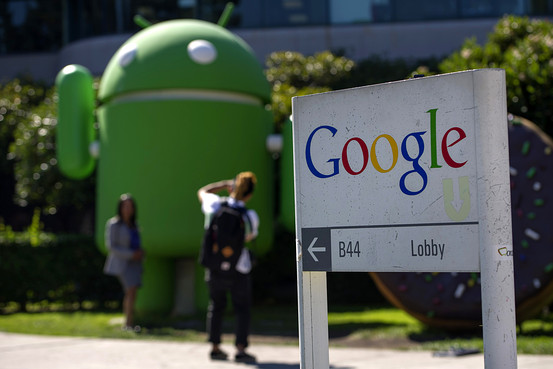- Apr 24, 2013
- 1,200

Google's headquarters in Mountain View, Calif. Bloomberg News
BRUSSELS—Individuals can ask Google Inc. to remove links to news articles, court judgments and other documents in search results for their name, the European Union's highest court said Tuesday—a surprise decision that could significantly disrupt how Google and other search-engine operators work across Europe.
The case centered on the so-called right to be forgotten, which plaintiffs argued before the court gives individuals the opportunity to request old information about them be removed from search engines. The ruling means that individuals can request operators remove links that come up during searches. It doesn't mean that the original article or website has to be removed or altered—it would only affect search results.
The ruling contradicts the position of the European Union's advocate general, who offered an opinion last year saying operators were under no obligation to honor such requests. Google called the ruling disappointing but said it needed time to analyze the implications. Other search engine operators, like Yahoo Inc. and Microsoft Corp., which operates the search platform Bing, would also be affected by the ruling. No one at Yahoo was immediately available to comment while Microsoft declined to comment.
The decision "makes grim reading for Google and will delight privacy advocates in the EU," said Richard Cumbley, information-management and data-protection partner at U.K. law firm Linklaters.
The European Court of Justice said Tuesday that search companies are responsible for personal data that shows up on Web pages they link to in search results. The decision allows individuals to request Google or other search operators to take down links to Web pages that are published by third parties, such as newspapers, containing information relating them when searched by name—such as coverage of court cases or legal announcements.
The ruling doesn't mean that search-engine operators have to comply with every request to stop linking to certain pieces of information. However, if operators don't comply, individuals can ask their national data-protection authorities to order the links to that information to be deleted.
"This is going to have wide implications for the Internet, for the use of the Internet, for the Internet economy," said Christopher Kuner, a partner at law firm Wilson Sonsini Goodrich & Rosati. "It sets up a system whereby search engine providers have to, when requested, take down instances of persons names, independently of what the website they're indexing does."
The Luxembourg-based court said that because search results linked to a person's name have such a huge impact on people's lives, they should have the right to get certain material removed. But the court left plenty of ambiguity and interpretation in setting the broad parameters of what would be an allowable request. It said, for example, that a balance needs to be struck between the public interest, especially with people who have a prominent role in society.
"This balance may however depend, in specific cases, on the nature of the information in question and its sensitivity for the data subject's private life," it said, as well as the public interest, "which may vary, in particular, according to the role played by the data subject in public life."
All that wiggle room in interpretation may be the toughest challenge for companies who will now need to interpret the ruling. There is no appeal process for the ruling, but the matter now goes to national courts across Europe which are now tasked with implementing the high court's ruling.
Google said it was surprised by the ruling.
"This is a disappointing ruling for search engines and online publishers in general," said Google spokesman Al Verney. "We are very surprised that it differs so dramatically from the Advocate General's opinion and the warnings and consequences that he spelled out." He added that Google will now take the time to analyze the implications.
Tuesday's judgment comes in response to a 2011 request for guidance on EU privacy laws from a Spanish court. The Spanish court was dealing with a case pitting Google against Spain's data-protection regulator, which had to assess 180 cases brought by individuals unhappy with search results relating to their name.
The case the court considered, which sets a precedent for similar cases, concerned Mario Costeja González, who complained to Spain's data protection authority after Google results displayed links to a 1998 announcement in the Spanish newspaper La Vanguardia. At the time La Vanguardia had published an announcement for a real estate auction, which contained details on Mr. Costeja González's social security debts—a situation that is now fully resolved.
Hugo Guidotti, a Madrid surgeon, also asked Google to remove a link to a 1991 report in Spanish newspaper El País about a malpractice lawsuit against him after an allegedly botched breast surgery. The link turns up in Google searches of his name.